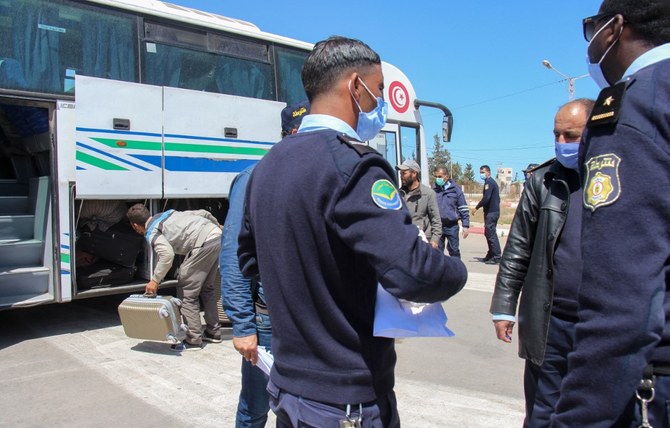Tunisia and Libya are to reopen their shared border on Friday, the presidency in Tunis said, two months after they were closed as the country’s coronavirus caseload soared.
“The president of (Tunisia) issued orders to reopen border crossings with the state of Libya from Friday” at 7:00 am local time (0600 GMT), the office of President Kais Saied said in a statement.
Libya closed its land borders and suspended flights between the two countries on July 8 due to an explosion in Covid-19 cases in Tunisia, which responded by closing its own crossings.
But with the caseload rapidly dropping, officials on both sides agreed to reopen the frontier, with measures in place to limit the possibility of contaminations.
Tunis and Tripoli agreed on a health protocol “subject to revision in light of developments in the health situation in the two countries,” the Tunisian statement read.
The reopening would be reviewed in case of any “violation”, it added.
Tunisia’s Covid-19 caseload, which in August was the world’s worst according to official data, has since significantly improved.
On Tuesday the country of 11.7 million recorded 1,142 new cases and nine coronavirus-caused deaths.
Reopening the border was a key point of discussions between Saied and Libyan transitional Prime Minister Abdulhamid Dbeibah, who visited Tunis last Thursday.
The Ras Al-Jdeir and Dahabiya crossings are key economic lifelines for Tunisian traders in the country’s economically marginalised south, while many Libyans cross to access medical treatment and visit Tunisia for tourism.
 Tunisian border policemen follow up the repatriation of Tunisian workers stranded in Libya as they board buses at the Ras Jedir border post to return to their country, on April 21, 2020. - Hundreds of Tunisians stranded for weeks in war-racked Libya due to the coronavirus have returned home after forcing their way through a border crossing, the UN and aid groups said, while Tunis's interior ministry denied that Tunisians had crossed the Ras Jedir border point a day earlier using force, saying authorities at the frontier allowed 652 to enter from Libya. (Photo by FATHI NASRI / AFP)
Tunisian border policemen follow up the repatriation of Tunisian workers stranded in Libya as they board buses at the Ras Jedir border post to return to their country, on April 21, 2020. - Hundreds of Tunisians stranded for weeks in war-racked Libya due to the coronavirus have returned home after forcing their way through a border crossing, the UN and aid groups said, while Tunis's interior ministry denied that Tunisians had crossed the Ras Jedir border point a day earlier using force, saying authorities at the frontier allowed 652 to enter from Libya. (Photo by FATHI NASRI / AFP) 